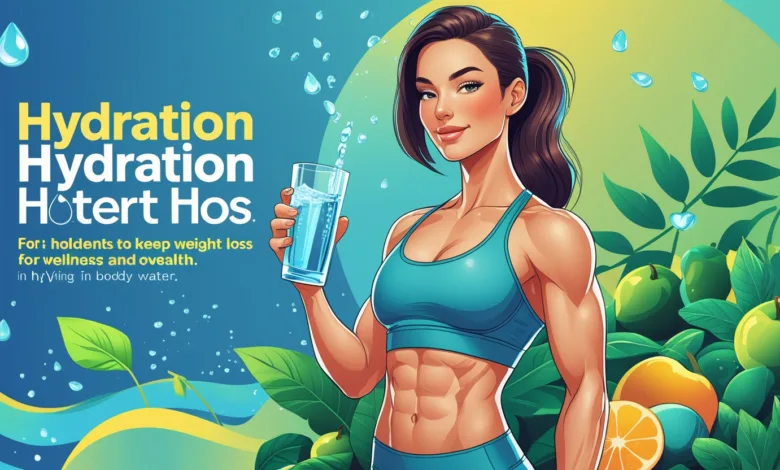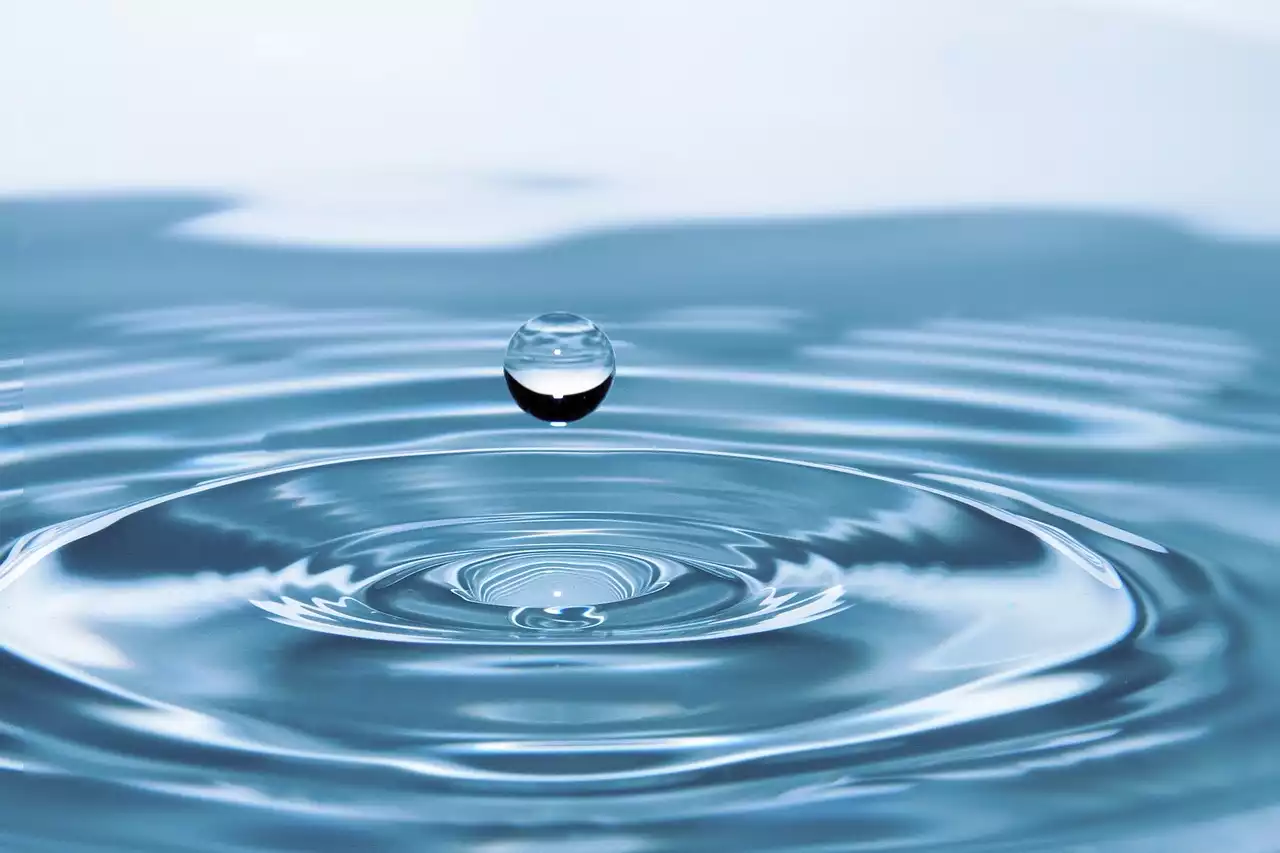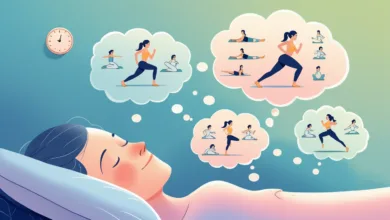The role of hydration in weight loss and maintaining a healthy body

Hydration is often overlooked when it comes to weight loss and maintaining a healthy body. Yet, it plays a crucial role in both. Water is essential for numerous bodily functions, including metabolism, digestion, and circulation. In fact, dehydration can lead to a slower metabolism, making it harder to shed those extra pounds. Additionally, staying hydrated can help curb cravings and unnecessary snacking, aiding in weight loss efforts. But it’s not just about weight loss; hydration is vital for overall health and well-being. Proper hydration can improve skin health, boost energy levels, and even aid in cognitive function. So, if you want to maintain a healthy body and lose weight, make sure you’re drinking enough water throughout the day. It’s a simple yet powerful step towards achieving your health and fitness goals.
Understanding hydration and its importance
Water is essential for the human body to function properly. It accounts for approximately 60% of our body weight and is necessary for numerous bodily functions. Water is used to regulate body temperature, transport nutrients and oxygen to cells, remove waste products, and lubricate joints. Without enough water, our bodies cannot function optimally.
Hydration is especially important for those looking to lose weight, as water is necessary for proper metabolism and digestion. When we are dehydrated, our bodies slow down our metabolic rate in an effort to conserve energy. This can make it more difficult to lose weight, as a slower metabolism means fewer calories burned. Drinking enough water throughout the day can help keep our metabolism firing on all cylinders and make it easier to shed those extra pounds.
Proper hydration is also essential for overall health and well-being. Water plays a key role in keeping our skin healthy and hydrated, which can help reduce the signs of aging and improve overall skin health. Staying hydrated can also boost our energy levels, helping us feel more alert and focused throughout the day. In addition, water is necessary for proper cognitive function, as dehydration can impair our ability to think clearly and concentrate.
The link between hydration and weight loss
Many people overlook the importance of hydration when it comes to weight loss, but the two are closely linked. Drinking enough water throughout the day can help curb cravings and unnecessary snacking, as thirst is often mistaken for hunger. Additionally, staying hydrated can help keep our metabolism firing on all cylinders, making it easier to burn calories and shed those extra pounds.
One study published in the journal Obesity found that drinking 500 ml of water before meals helped participants lose more weight than those who did not drink water before meals. The researchers concluded that drinking water before meals can help reduce calorie intake and aid in weight loss efforts.
Another study published in the Annals of Family Medicine found that increasing water intake by just one percent can lead to a decrease in total daily calorie intake and a decrease in consumption of sugar, sodium, and cholesterol. The researchers concluded that increasing water intake may be a simple and effective way to promote weight loss and improve overall health.
How dehydration affects the body
Dehydration occurs when our bodies do not have enough water to function properly. This can happen when we do not drink enough water, lose too much water through sweating, or a combination of the two. Dehydration can have numerous negative effects on the body, including:
– Slower metabolism: When we are dehydrated, our bodies slow down our metabolic rate in an effort to conserve energy. This can make it more difficult to lose weight, as a slower metabolism means fewer calories burned.
– Fatigue: Dehydration can lead to feelings of fatigue and sluggishness, making it harder to stay active and motivated.
– Headaches: Dehydration can cause headaches and migraines, which can be painful and debilitating.
– Constipation: Water is necessary for proper digestion and bowel movements. Dehydration can lead to constipation and other digestive issues.
– Kidney damage: Chronic dehydration can lead to kidney damage and other health problems.

The benefits of drinking water for weight loss and overall health
Drinking enough water throughout the day can have numerous benefits for weight loss and overall health. Here are just a few:
– Curbs cravings: Drinking water can help curb cravings and unnecessary snacking, as thirst is often mistaken for hunger.
– Boosts metabolism: Water is necessary for proper metabolism and digestion. Staying hydrated can help keep our metabolism firing on all cylinders, making it easier to burn calories and shed those extra pounds.
– Improves skin health: Water plays a key role in keeping our skin healthy and hydrated, which can help reduce the signs of aging and improve overall skin health.
– Increases energy levels: Staying hydrated can boost our energy levels, helping us feel more alert and focused throughout the day.
– Aids in cognitive function: Water is necessary for proper cognitive function, as dehydration can impair our ability to think clearly and concentrate.
How much water should you drink?
The amount of water you should drink each day depends on a variety of factors, including your age, sex, weight, and activity level. However, a general rule of thumb is to drink at least eight 8-ounce glasses of water per day, or about 2 liters total. This is known as the “8×8 rule” and is a good starting point for most people.
If you are physically active or live in a hot climate, you may need to drink more water to stay properly hydrated. The color of your urine can also be a good indicator of your hydration levels. If your urine is light yellow or clear, you are likely drinking enough water. If your urine is dark yellow or amber-colored, you may need to drink more water.
Tips for staying hydrated throughout the day
Staying hydrated throughout the day can be challenging, especially if you are busy or on-the-go. Here are a few tips to help you stay hydrated:
– Carry a water bottle with you wherever you go: Having a water bottle on hand can help remind you to drink water throughout the day.
– Set reminders: Use your phone or computer to set reminders to drink water at regular intervals.
– Drink water with meals: Drinking water with meals can help you stay hydrated and reduce calorie intake.
– Eat hydrating foods: Many fruits and vegetables, such as watermelon and cucumber, are high in water and can help keep you hydrated.
– Avoid sugary drinks: Sugary drinks, such as soda and juice, can dehydrate the body and lead to weight gain.
Hydrating foods to add to your diet
In addition to drinking water, there are many hydrating foods you can add to your diet to help you stay properly hydrated. Here are a few:
– Watermelon: Watermelon is over 90% water and is a great source of hydration.
– Cucumber: Cucumbers are over 95% water and are also a good source of vitamins and minerals.
– Celery: Celery is over 95% water and is also low in calories and high in fiber.
– Strawberries: Strawberries are over 90% water and are also a good source of vitamin C and antioxidants.
– Tomatoes: Tomatoes are over 90% water and are also a good source of vitamins and minerals.
Common myths about hydration and weight loss
There are many myths surrounding hydration and weight loss. Here are a few:
– Myth: Drinking ice-cold water will help you burn more calories.
– Fact: While drinking cold water can help boost your metabolism slightly, the effect is minimal and not enough to lead to significant weight loss.
– Myth: Drinking more water will flush out toxins and help you lose weight.
– Fact: While drinking water can help flush out toxins from the body, it is not a magic cure for weight loss. To lose weight, you still need to eat a healthy diet and exercise regularly.
– Myth: You only need to drink water when you’re thirsty.
– Fact: By the time you feel thirsty, your body is already dehydrated. It’s important to drink water throughout the day to stay properly hydrated.



